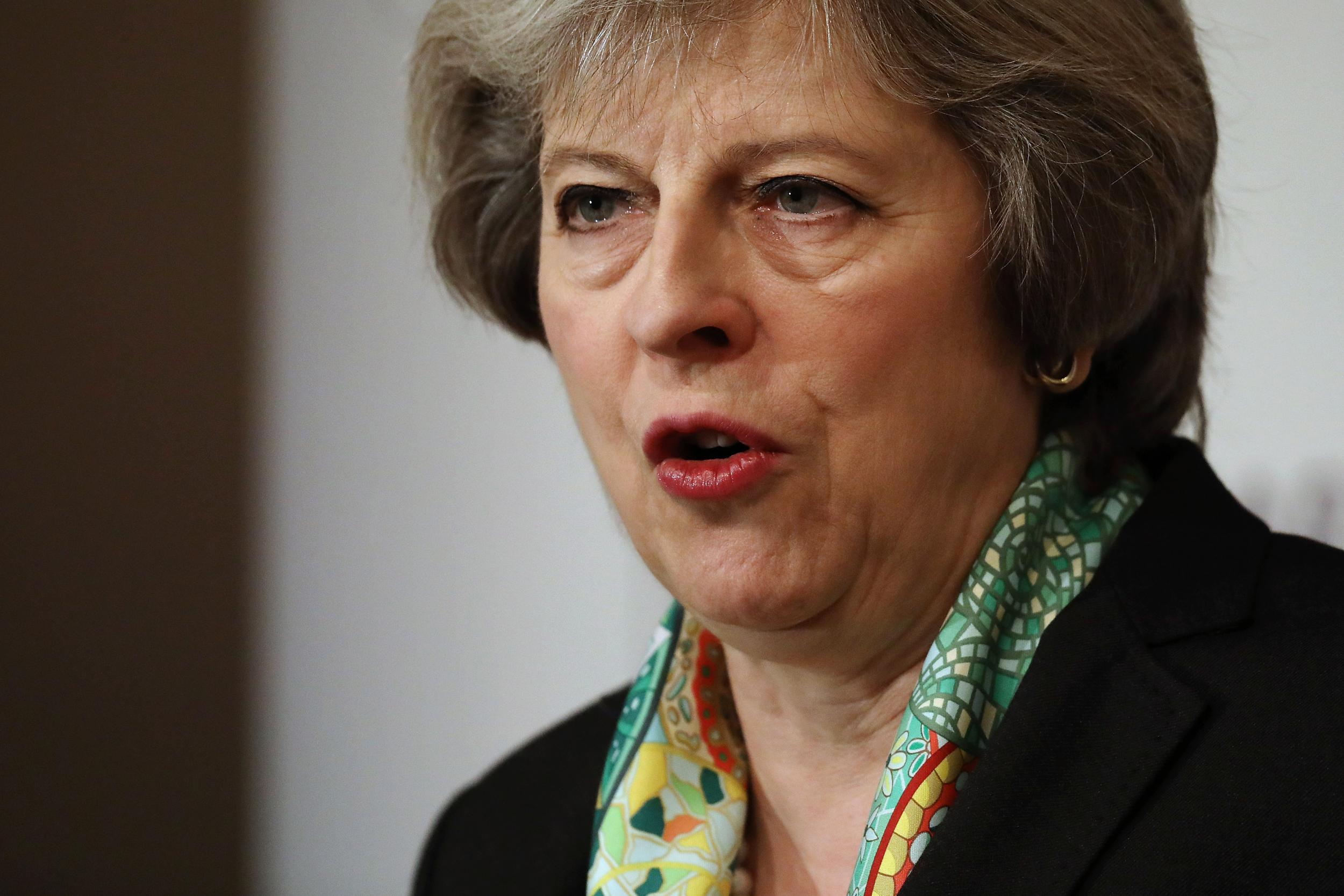Theresa May is wrong to suggest the NHS needs reform rather than money – it needs both
It is curious that the Prime Minister should deliver a speech acknowledging huge additional demand on the health service, and then to fail to set out how these demands can be met

Your support helps us to tell the story
From reproductive rights to climate change to Big Tech, The Independent is on the ground when the story is developing. Whether it's investigating the financials of Elon Musk's pro-Trump PAC or producing our latest documentary, 'The A Word', which shines a light on the American women fighting for reproductive rights, we know how important it is to parse out the facts from the messaging.
At such a critical moment in US history, we need reporters on the ground. Your donation allows us to keep sending journalists to speak to both sides of the story.
The Independent is trusted by Americans across the entire political spectrum. And unlike many other quality news outlets, we choose not to lock Americans out of our reporting and analysis with paywalls. We believe quality journalism should be available to everyone, paid for by those who can afford it.
Your support makes all the difference.Theresa May is the Home Office Prime Minister. She knows that crime fell despite her cuts in police numbers. Her conclusion from this, as Andrew Grice reported this week, is that “the NHS does not need more money; it needs more reform”. She does not seem to want to know that the fall in crime was in line with international trends. And she does not seem to want to know that the problems of the NHS are in part a problem of money.
This led her to make an elementary political error on Monday, in her speech to the Charity Commission about the “shared society”. The most substantial part of the speech was a pledge to “to transform the way we deal with mental health problems right across society, and at every stage of life”.
This is an admirable aim, which The Independent enthusiastically applauds. Yet it leads almost instantly, with no pause for reflection, to the questions: how, and how are you going to pay for it?
Of course, there are many things wrong with the way the NHS deals with mental illness at the moment: in particular, the routine prescription of drugs by GPs who can spend only a few minutes with each patient. But any better treatment of mental illness is bound to be more expensive, because it needs more skilled practitioners to spend more time with people.
It is curious that the Prime Minister, faced with an NHS in which all the indicators are flashing “maximum capacity exceeded”, should deliver a speech acknowledging that there is another huge demand on the service that is not being met. And then, not only failing to set out how these demands can be met but to imply, as she did in the House of Commons on Wednesday, that the problem is differing levels of performance in different parts of the country.
Jeremy Hunt, the Health Secretary, took a rather more sensible line when he was summoned to the House on Monday to account for what the British Red Cross, with justifiable hyperbole, called the “humanitarian crisis” in the NHS. Mr Hunt said to MPs: “I just wonder if we don’t need to start an honest discussion with the people about how we are going to devote more resources to health in this country.”
Coincidentally, Dominic Cummings, the director of the Vote Leave campaign, revealed this week that, if Boris Johnson had become prime minister, he intended to spend an extra £100m a week on the NHS. “Absolutely. Absolutely. We must do this, no question, we’ll park our tanks everywhere,” Mr Johnson said on the day after the referendum and “Gove strongly agreed”. That is not the £350m figure they painted on the sides of their buses, but it is an extra £5bn a year, the kind of sum that could make a difference.
Ms May insists repeatedly that she understands that the referendum vote was not just a vote to leave the European Union: that it was a vote for a different kind of politics and a different kind of economy. But Mr Cummings makes the point that it was also a vote for more money for the NHS – that was Vote Leave’s most successful campaign message.
It is a message that has worked in British politics before. Tony Blair and Gordon Brown raised National Insurance contributions for the NHS in 2002, one of the few examples of a popular tax rise. It provided the foundations for the most successful period in the NHS’s history, as waiting times came down and patient satisfaction reached a record high of 70 per cent in 2010.
Those gains have now been wiped out because, since then, NHS spending, while continuing to rise a little in real terms, has failed to keep up with rising demands. It could be argued that the lurch from crisis to temporary political consensus and back again is no way to run a public health service, but that is a debate for another day. Today, the NHS needs more money as well as reform.
It is in the Prime Minister’s political interest to realise this sooner rather than later.
Join our commenting forum
Join thought-provoking conversations, follow other Independent readers and see their replies
Comments